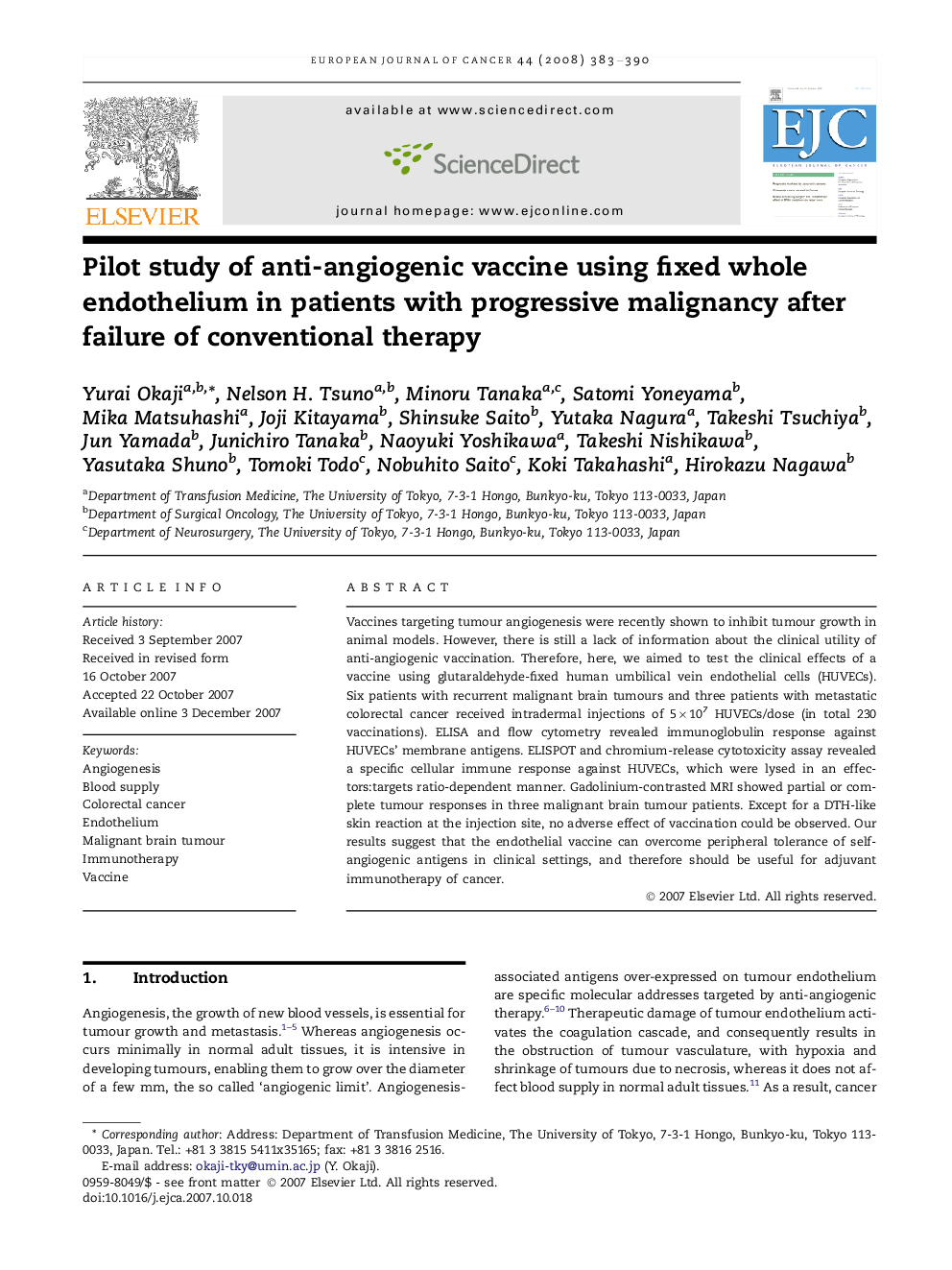| Article ID | Journal | Published Year | Pages | File Type |
|---|---|---|---|---|
| 2124423 | European Journal of Cancer | 2008 | 8 Pages |
Vaccines targeting tumour angiogenesis were recently shown to inhibit tumour growth in animal models. However, there is still a lack of information about the clinical utility of anti-angiogenic vaccination. Therefore, here, we aimed to test the clinical effects of a vaccine using glutaraldehyde-fixed human umbilical vein endothelial cells (HUVECs). Six patients with recurrent malignant brain tumours and three patients with metastatic colorectal cancer received intradermal injections of 5 × 107 HUVECs/dose (in total 230 vaccinations). ELISA and flow cytometry revealed immunoglobulin response against HUVECs’ membrane antigens. ELISPOT and chromium-release cytotoxicity assay revealed a specific cellular immune response against HUVECs, which were lysed in an effectors:targets ratio-dependent manner. Gadolinium-contrasted MRI showed partial or complete tumour responses in three malignant brain tumour patients. Except for a DTH-like skin reaction at the injection site, no adverse effect of vaccination could be observed. Our results suggest that the endothelial vaccine can overcome peripheral tolerance of self-angiogenic antigens in clinical settings, and therefore should be useful for adjuvant immunotherapy of cancer.
